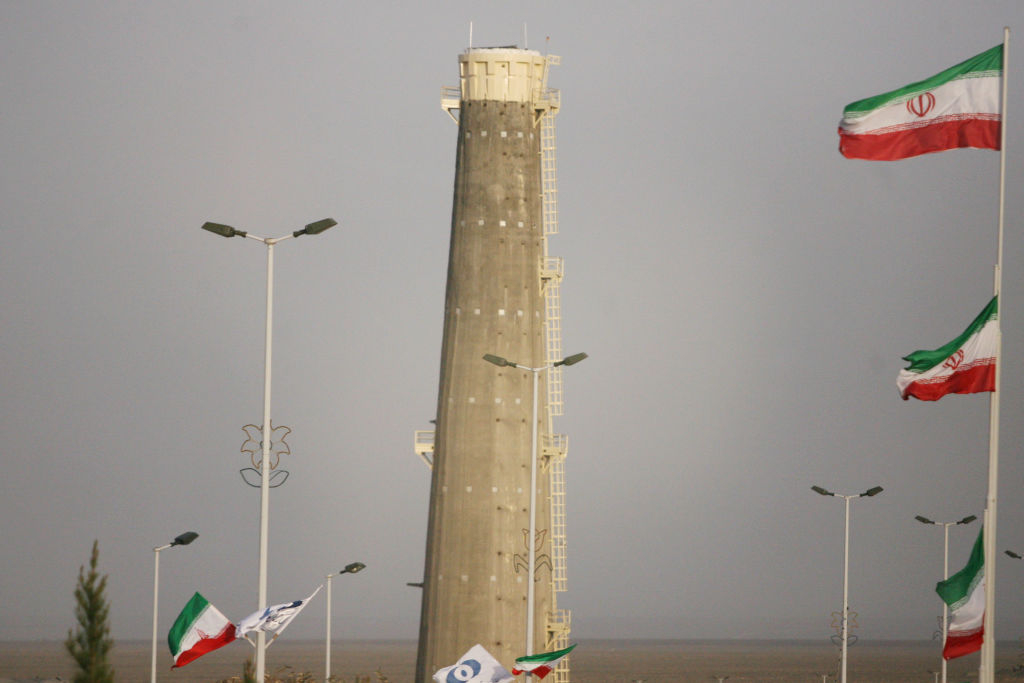In this mailing:
- Majid Rafizadeh: Iran: Evidence that Violated Nuclear Deal Since Day One?
- Lawrence A. Franklin: India: Modi's Welcome Move on Kashmir
by Majid Rafizadeh • September 23, 2019 at 5:00 am
The IAEA first ignored the reports about Iran's undeclared clandestine nuclear facilities. This should not come as a surprise: the IAEA has a long history of misreporting the Islamic Republic's compliance with the deal and declining to follow up on credible reports about Iran's illicit nuclear activities. New evidence shows that Iran's theocratic establishment was most likely violating the nuclear agreement since the day that Obama's administration and Tehran struck the deal in 2015. The international community would truly do itself a great service to recognize that the nuclear deal was nothing more than a pro-mullah agreement which provided Iran's ruling clerics with billions of dollars to pursue their anti-American, anti-Semitic, anti-Iranian people and pro-terror activities, while simultaneously providing cover for Iran to pursue its nuclear ambitions.

The Iranian government is advancing its nuclear program at a faster pace. Recently, the Atomic Energy Organization of Iran declared that Tehran has activated advanced centrifuges. Pictured: The Natanz nuclear enrichment facility in Iran. (Photo by Majid Saeedi/Getty Images)
The Iranian government is advancing its nuclear program at a faster pace. Recently, the Atomic Energy Organization of Iran (AEOI) declared that Tehran took the third step in increasing its nuclear activities by activating advanced centrifuges: 20 IR-4 and 20 IR-6 centrifuges. The previous two steps that Tehran took included: increasing the enriched uranium stockpile beyond the 300kg cap, which was set by the Joint Comprehensive Plan of Action (JCPOA), and enriching uranium to levels beyond the limit of 3.67 percent. As part of its rush to a nuclear breakout capability, the Islamic Republic of Iran is also expanding its research and development work beyond the limitations set by the JCPOA. Iranian nuclear agency spokesman Behrouz Kamalvandi told a televised news conference, "We have started lifting limitations on our Research and Development imposed by the deal ... It will include development of more rapid and advanced centrifuges."
Continue Reading Article
by Lawrence A. Franklin • September 23, 2019 at 4:00 am
Since the partition of India in 1947, which established the two independent states of India and Pakistan, Pakistan has infiltrated soldiers into Indian Kashmir, assisted anti-Indian Muslim terrorists in Jammu-Kashmir and sponsored many murderous operations inside India proper. India is determined to safeguard its standing as the world's most populous democracy, particularly in the shadow of the rising power of totalitarian China, which enjoys a close relationship with Pakistan. Revoking Article 370 sends a clear signal to both Pakistan and China that India will resolutely defend its territory against efforts by Islamabad or Beijing to whittle away at Indian sovereignty in any portion of its territory. India may therefore consider a strategic alliance with the U.S. to protect the Indo-Pacific region from Chinese territorial aggression and acquisitive claims of sovereignty in the South and East China Seas. "Pakistan has threatened to use nuclear arms. Pakistan is somewhere where terrorists have been able to plan bloody terrorist attacks in Europe without mentioning tremendous human rights violation in Pakistan." — Fulvio Martusciello, Italian MEP, speaking at the European Parliament, September 18, 2019.

Since the partition of India in 1947, which established the two independent states of India and Pakistan, Pakistan has infiltrated soldiers into Indian Kashmir, assisted anti-Indian terrorists in Jammu-Kashmir and sponsored many murderous operations inside India proper. Pictured: Srinagar, the largest city of Kashmir. (Image source: KennyOMG/Wikimedia Commons)
Indian Prime Minister Narendra Modi recently responded to the heavy criticism he has been receiving -- and to violent protests that erupted -- over his controversial decision to revoke Article 370 of the Indian Constitution, which granted a certain degree of autonomy to Jammu and Kashmir, by calling for "hugging each Kashmiri" and for the creation of a "new paradise" in the valley. Modi accused elements "from across the border" in Pakistan of spurring the protests that have been taking place since August 5, when New Delhi announced the revoking of Article 370 – a move he said "is going to be the medium for fulfilling the aspirations and dreams of the people of Jammu and Kashmir." Modi insisted that what the "youth, mothers and sisters in Jammu and Kashmir" want is "development and new job opportunities."
Continue Reading Article
|
|
|
|



